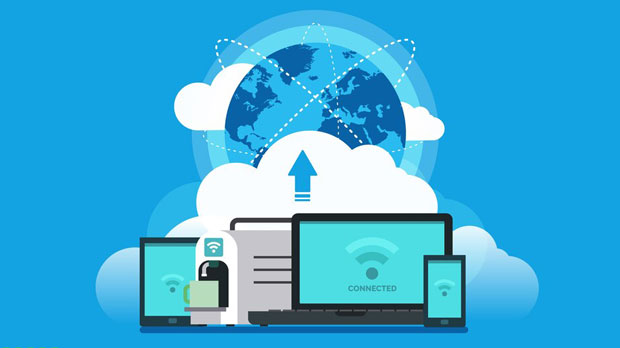Data scraping has become a powerful tool for businesses, researchers, and developers, but it also requires a solid understanding of the infrastructure involved. One critical element in this process is using proxies, especially sock s5 proxies, to hide the scraper's IP address and bypass restrictions. SOCKS5 proxies are a favorite for their flexibility and ability to handle a variety of protocols. Among the numerous socks5 proxy providers, usaproxy and pyproxy are two of the most discussed. This article will analyze these two solutions in detail, comparing their features, reliability, scalability, and performance to determine which is more suitable for data scraping tasks. By the end, you'll have a clearer understanding of which service fits your needs and how to make the most of them. What is SOCKS5 Proxy?Before diving into the comparison, it's important to understand the SOCKS5 protocol. SOCKS (Socket Secure) is an internet protocol that routes network packets between a client and server through a proxy server. SOCKS5, the latest version, provides several key advantages over its predecessors, such as:- Versatility: SOCKS5 supports a variety of protocols, including TCP and UDP, making it ideal for applications that require diverse network communications.- Security and Anonymity: It provides better anonymity than regular HTTP proxies by not altering the data and allowing it to pass through with minimal interference.- No IP Address Filtering: SOCKS5 proxies do not rely on a whitelist or blacklist, which allows for more freedom in accessing websites and online resources.When engaging in data scraping, these features are crucial to avoid detection, IP bans, and blocks. Overview of usaproxy and pyproxy usaproxyusaproxy is a tool developed for Python users to handle SOCKS5 proxy connections efficiently. It provides a simple way to integrate proxy servers into scraping scripts without worrying about low-level details. usaproxy allows users to manage proxy settings easily, providing an ideal solution for quick implementations. Some key features of usaproxy include:- Ease of Use: usaproxy's integration with Python makes it a top choice for developers looking to write short and effective scraping scripts. It abstracts the complexities of proxy handling, letting the developer focus on the scraping logic.- Flexible Proxy Management: With usaproxy, users can manage multiple proxies, switching between them based on conditions like response time or error rates. This ensures consistent scraping without interruptions.- Automatic Failover: If a proxy fails, usaproxy can automatically switch to another, helping prevent downtime during data collection. pyproxyOn the other hand, pyproxy offers an expansive network of SOCKS5 proxies located in various countries, including a range of residential proxies for more robust scraping tasks. It’s designed for users who need highly reliable and scalable proxy solutions.Key features of pyproxy include:- Large Proxy Pool: pyproxy offers a broad range of IP addresses spread across numerous locations, making it perfect for bypassing geo-blocks and accessing region-specific data.- Speed and Stability: The proxies provided by pyproxy are known for their speed, making it a great choice for high-volume scraping tasks. It also boasts high uptime, which is critical for data scraping projects that run continuously.- Advanced Features for Anonymity: pyproxy offers advanced configurations like IP rotation, which ensures that the scraper’s identity remains hidden throughout the process. Comparison: usaproxy vs pyproxy for Data Scraping PerformanceOne of the most significant aspects when choosing a proxy provider for data scraping is performance, particularly speed and reliability. - usaproxy Performance: usaproxy’s performance is highly dependent on the proxies that users choose to integrate. If users rely on free or public SOCKS5 proxies, performance may suffer due to slow speeds, high latency, and potential downtimes. However, for users with access to private or premium proxies, usaproxy performs reliably, offering reasonable speed and connection stability.- pyproxy Performance: pyproxy offers a more consistent and reliable experience due to its network of private residential proxies and optimized infrastructure. The speed is notably higher with pyproxy, especially in high-demand tasks. Its uptime is also superior, with frequent maintenance and checks on the proxies to ensure stability.For large-scale scraping operations that require speed and constant connectivity, pyproxy outperforms usaproxy. ScalabilityWhen scraping large datasets, scalability becomes a key factor. - usaproxy Scalability: While usaproxy is easy to set up and start with, scaling it for larger scraping tasks may present challenges. The need for high-quality proxy rotation and a large number of proxies may require additional manual configuration or the use of other tools to handle proxy management effectively.- pyproxy Scalability: pyproxy excels in this department. With its extensive proxy pool and automatic IP rotation, it is built to scale seamlessly. pyproxy is designed for users who need to scale their data scraping operations without worrying about infrastructure. This makes it an excellent choice for enterprise-level or large-scale projects. ReliabilityReliability refers to how consistently a proxy service performs under varying loads and how well it handles issues like IP bans, errors, and downtime.- usaproxy Reliability: Since usaproxy depends heavily on the quality of proxies used, its reliability can fluctuate. Free proxies might lead to frequent issues with connectivity and IP bans, while private proxies provide better reliability. However, users need to invest time in managing these proxies.- pyproxy Reliability: pyproxy is a more reliable service, with an emphasis on ensuring that their proxies remain stable under pressure. It offers automatic failover and proxy health checks, which means users can scrape data consistently without worrying about downtime or failed requests. Price ConsiderationsPrice can be a deciding factor for users, especially those with limited budgets.- usaproxy Pricing: usaproxy is generally cheaper because it allows users to integrate their own proxies. The cost depends on whether the user is relying on free proxies or purchasing premium ones. While the software itself is often free or low-cost, users should expect additional costs related to proxy purchases.- pyproxy Pricing: pyproxy is more expensive due to its premium proxy offerings and infrastructure. It provides a more streamlined experience with fewer issues, but this comes at a higher price point. However, for businesses or individuals who require high performance, this cost is often justified by the time saved and the consistency of the results. Security and AnonymityData scraping requires maintaining anonymity and protecting against detection, especially when accessing sensitive websites.- usaproxy Security: usaproxy, being an open-source tool, provides decent security by offering SSL support and a variety of proxy configurations. However, the overall security is dependent on the proxies you integrate, and free proxies may not offer the best protection.- pyproxy Security: pyproxy shines in terms of security. With residential IPs and advanced anonymity features, pyproxy ensures that your scraping activities remain undetected. Its proxies are less likely to be flagged or banned by websites compared to public proxies used with usaproxy. Which is Better for Data Scraping?When comparing usaproxy and pyproxy for data scraping, the decision largely depends on your specific needs:- For Beginners or Small Projects: If you’re just starting with data scraping and have a limited budget, usaproxy is a great choice. It offers an easy-to-use interface and flexibility for small-scale scraping tasks.- For Large-Scale, High-Performance Scraping: If you need reliable performance, scalability, and enhanced security for large-scale data scraping, pyproxy is the better choice. Its network of residential proxies, high uptime, and automatic proxy rotation make it ideal for continuous, high-volume scraping operations.In conclusion, both usaproxy and pyproxy have their strengths and weaknesses in the context of SOCKS5 proxy usage for data scraping. usaproxy is a flexible and affordable option for smaller projects or developers with specific proxy needs. However, pyproxy offers a more robust, secure, and scalable solution, making it better suited for large-scale and professional scraping tasks. Depending on your project's size, complexity, and budget, either tool could serve you well, but pyproxy generally offers a more seamless experience for high-performance data scraping.
Oct 15, 2025



































































